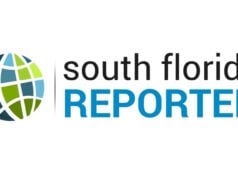
By Erin Marquis / Jalopnik
A chilling new report from the New York Times brings into focus what we in the automotive press has been saying for years and years: the mountains of data your car generates is unsecured, and it is being used without your knowledge or consent.
We’re likely all aware of the little dongle that insurance companies offer to drivers in the hopes that a babysat driver with cash on the line will behave like a safe driver. The only problem? People hate being watched, especially in their cars where there is supposed to be some semblance of privacy. It turns out, some automakers are skipping the whole “consent” business and allowing insurance companies to take a look at mountains of driving data without owner’s knowledge.
Take the tale of Kenn Dahl, who saw insurance costs on his leased Chevrolet Bolt shoot up 21 percent, with no insurance company offering anything lower. He found a separate company, LexisNexis, had developed a report on his driving habits — totally without his knowledge:
LexisNexis is a New York-based global data broker with a “Risk Solutions” division that caters to the auto insurance industry and has traditionally kept tabs on car accidents and tickets. Upon Mr. Dahl’s request, LexisNexis sent him a 258-page “consumer disclosure report,” which it must provide per the Fair Credit Reporting Act.
What it contained stunned him: more than 130 pages detailing each time he or his wife had driven the Bolt over the previous six months. It included the dates of 640 trips, their start and end times, the distance driven and an accounting of any speeding, hard braking or sharp accelerations. The only thing it didn’t have is where they had driven the car.
On a Thursday morning in June for example, the car had been driven 7.33 miles in 18 minutes; there had been two rapid accelerations and two incidents of hard braking.
According to the report, the trip details had been provided by General Motors — the manufacturer of the Chevy Bolt. LexisNexis analyzed that driving data to create a risk score “for insurers to use as one factor of many to create more personalized insurance coverage,” according to a LexisNexis spokesman, Dean Carney. Eight insurance companies had requested information about Mr. Dahl from LexisNexis over the previous month.
“It felt like a betrayal,” Mr. Dahl said. “They’re taking information that I didn’t realize was going to be shared and screwing with our insurance.”
Continue reading
Disclaimer
The information contained in South Florida Reporter is for general information purposes only.
The South Florida Reporter assumes no responsibility for errors or omissions in the contents of the Service.
In no event shall the South Florida Reporter be liable for any special, direct, indirect, consequential, or incidental damages or any damages whatsoever, whether in an action of contract, negligence or other tort, arising out of or in connection with the use of the Service or the contents of the Service. The Company reserves the right to make additions, deletions, or modifications to the contents of the Service at any time without prior notice.
The Company does not warrant that the Service is free of viruses or other harmful components












